
Terius Gray, better known by his stage name Juvenile, is an American rapper best known for his work with Birdman's Cash Money Records in the late 1990s and early 2000s, both solo and as a member of the label's then-flagship group, Hot Boys.

Cash Money Records is an American record label founded in 1991 by brothers Ronald "Slim" Williams and Bryan "Baby" Williams. The label gained prominence in the late 1990s for having signed and released albums for New Orleans–based musical acts including Lil Wayne, Juvenile, B.G., and Hot Boys. It became an imprint of Universal Records, a division of Universal Music Group in March 1998, and remained so during its following iterations as Universal Republic, Universal Motown and ultimately Republic Records.

The Hot Boys is an American hip hop group from New Orleans, Louisiana, formed in 1997 and composed of rappers B.G., Lil Wayne, Juvenile and Turk.

Tha Carter is the fourth studio album by American rapper Lil Wayne. It was released on June 29, 2004, by Cash Money Records and Universal Records. The production on the album was mostly handled by Cash Money's former in-house producer Mannie Fresh, before Mannie left the label. A chopped and screwed version of the album was also released in 2004. The album spawned four sequels: Tha Carter II, Tha Carter III, Tha Carter IV, and Tha Carter V.

"Back That Azz Up", also known as "Back That Thang Up" for a radio edit, is a song recorded by American rapper Juvenile featuring fellow American rappers Mannie Fresh and Lil Wayne. Produced by Fresh, it was released on June 11, 1999, as the second single from Juvenile's 1998 album 400 Degreez. The song was Juvenile's biggest hit single at the time until the chart-topping "Slow Motion" in 2004, surpassing "Back That Azz Up" which peaked at number 19 on the Billboard Hot 100.
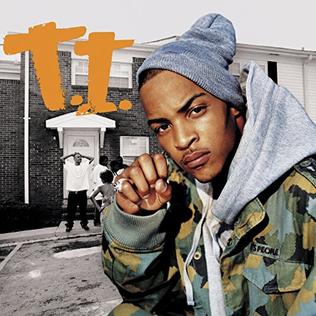
Urban Legend is the third studio album by American rapper T.I., released on November 30, 2004, through Grand Hustle Records and Atlantic Records. The album debuted at number seven on the US Billboard 200, selling 193,000 copies in its first week of release. It also debuted atop the magazine's Top R&B/Hip-Hop Albums and Top Rap Albums charts.
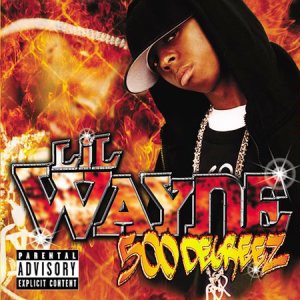
500 Degreez is the third solo studio album by American rapper Lil Wayne. It was released on July 23, 2002, through Cash Money Records and Universal Records. The album was titled in continuation of the naming sequence of successful 1998's 400 Degreez album by fellow Hot Boys rapper and ex-labelmate Juvenile.

"We Takin' Over" is the first single from DJ Khaled's second album, We the Best. Akon, T.I., Rick Ross, Fat Joe, Baby, and Lil Wayne are all featured on this hip hop track. Nate "Danja" Hills assisted the artists in writing the song and is also the producer.

"Ha" is a 1998 single by rapper Juvenile, from his third album 400 Degreez. It was produced by Mannie Fresh. This song, along with Juvenile's "Back That Azz Up" and B.G.'s "Bling Bling" was responsible for taking Cash Money Records from a small local label in New Orleans to the pop mainstream. The song is notable for its unique style of rapping, with every line except the chorus ending with "ha". The chorus to the song includes a line taken from the earlier Juvenile single "Solja Rags".

"And Then What" is the debut single written and performed by American rapper Young Jeezy. It was released in mid-2005 as the first single from his debut album Let's Get It: Thug Motivation 101. It was produced by and features Mannie Fresh. The official music video features cameo appearances by Fabolous, Bun B, Lil Scrappy, 2 Chainz and Dr. Dre.

The discography of American rapper Birdman consists of four studio albums, three collaborative albums, two mixtapes, 23 music videos, 48 singles, including 23 as a featured artist, and 7 promotional singles. In 2002, Birdman released his debut studio album Birdman under the stage name Baby. It peaked at number 24 on the US Billboard 200, spending 23 weeks on the chart. Three singles were released from the album; the first, "Do That...", reached number 33 on the US Billboard Hot 100, and the second, "What Happened to That Boy", reached number 45 on the same chart. The third single, "Baby You Can Do It", only charted on the US Hot R&B/Hip-Hop Singles Sales chart. In 2003, Birdman collaborated with singer Ginuwine on the single "Hell Yeah" and rapper Bow Wow on the single "Let's Get Down", which reached numbers 17 and 14 respectively on the Hot 100.

"100 Million" is the second single from Birdman's third studio album, 5 * Stunna. The track features Young Jeezy, Rick Ross and Lil Wayne, and was produced by Cool & Dre. Dre performs the chorus and DJ Khaled performs the intro and outro, but neither of the two are credited. The song discusses what Birdman believes is a major accomplishment: spending 100 million dollars. The song reached number sixty-nine on the Hot R&B/Hip-Hop Songs chart, and number eighteen on the Bubbling Under Hot 100 Singles chart. The song samples Ozzy Osbourne's "Mr. Crowley".

"I Need a Hot Girl" is a song by New Orleans hip-hop group, the Hot Boys. The single was featured on their album Guerrilla Warfare. The song, as well as the entire album, was produced by Mannie Fresh. "I Need a Hot Girl" was written by Lil Wayne, B.G. and Turk. Juvenile did not appear on the track, but was featured in the video. The song was moderately successful, peaking at No. 65 on theBillboard Hot 100, the Hot Boys' only song there.

Da REAList is the third studio album by American rapper Plies. It was released on December 16, 2008, by Big Gates Records, Slip-n-Slide Records and Atlantic Records.
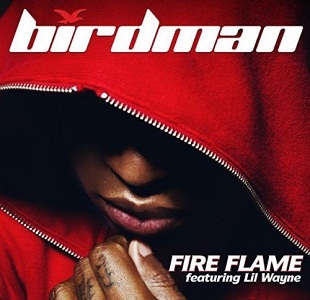
"Fire Flame" is a song by American rapper Birdman. The song features a guest appearance from fellow rapper Lil Wayne, who was not originally intended to appear on the song: however, his vocals were added following his release from prison. The rappers wrote the song, along with record producers Mr. Beatz and Kill Will, who also handled the song's production.

"Take It to the Head" is a song by American hip hop producer DJ Khaled, released as the lead single from his sixth studio album, Kiss the Ring. The song features American singer Chris Brown, rappers Rick Ross, Lil Wayne and Trinidadian American rapper Nicki Minaj. The song was premiered via DJ Khaled's Twitter on March 26, 2012. It was later released for digital download in the United States on April 3, 2012. The single was certified gold by the Recording Industry Association of America (RIAA) for sales of over 500,000 digital copies. Musically, "Take It to the Head" is a hip hop song with elements of trap from Nicki Minaj, Lil Wayne and Rick Ross, and R&B from Chris Brown.
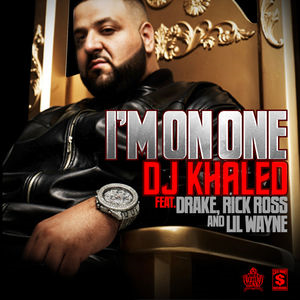
"I'm on One" is a song by American hip hop artist DJ Khaled, released as the second single from his fifth studio album, We the Best Forever. The hip hop song features Canadian rapper Drake and American rappers Rick Ross and Lil Wayne and features production from Canadian producers T-Minus, Nikhil S. and Noah "40" Shebib. It was released for digital download in the United States on May 20, 2011. Remixes and freestyles were released from rappers such as Tyga, Meek Mill, Jamie Drastik, including other rappers.
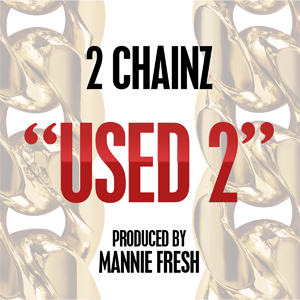
"Used 2" is a song by American rapper 2 Chainz from his second studio album B.O.A.T.S. II: Me Time (2013). Produced and co-written by Mannie Fresh, it was released as the second single from the album on September 18, 2013.

"Tha Block Is Hot" is the debut single by American rapper Lil Wayne, and features fellow American rappers B.G. and Juvenile. It was released on October 23, 1999 via Cash Money Records as the lead single from the former's debut solo studio album of the same name (1999). Recording sessions took place at Cash Money Studios in Metairie, Louisiana. Production was handled by Mannie Fresh with executive producers Ronald "Slim" Williams and Birdman.

ColleGrove is the third studio album by American rapper 2 Chainz. It was released on March 4, 2016, by Def Jam Recordings. The album is a collaborative effort between him and fellow American rapper Lil Wayne, but due to the latter's record label issues, only 2 Chainz was credited as the primary artist.




















